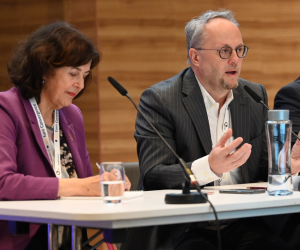Euro Convergence: Attendees want end to regulatory ‘micromanagement’
 APIsBiologics/ biosimilars/ vaccinesBiotechnologyCombination products/companion diagnosticsDiagnostics/IVDsEuropeMedical DevicesPharmaceuticalsRegulatory Intelligence/Policy
APIsBiologics/ biosimilars/ vaccinesBiotechnologyCombination products/companion diagnosticsDiagnostics/IVDsEuropeMedical DevicesPharmaceuticalsRegulatory Intelligence/Policy APIsBiologics/ biosimilars/ vaccinesBiotechnologyCombination products/companion diagnosticsDiagnostics/IVDsEuropeMedical DevicesPharmaceuticalsRegulatory Intelligence/Policy
APIsBiologics/ biosimilars/ vaccinesBiotechnologyCombination products/companion diagnosticsDiagnostics/IVDsEuropeMedical DevicesPharmaceuticalsRegulatory Intelligence/Policy